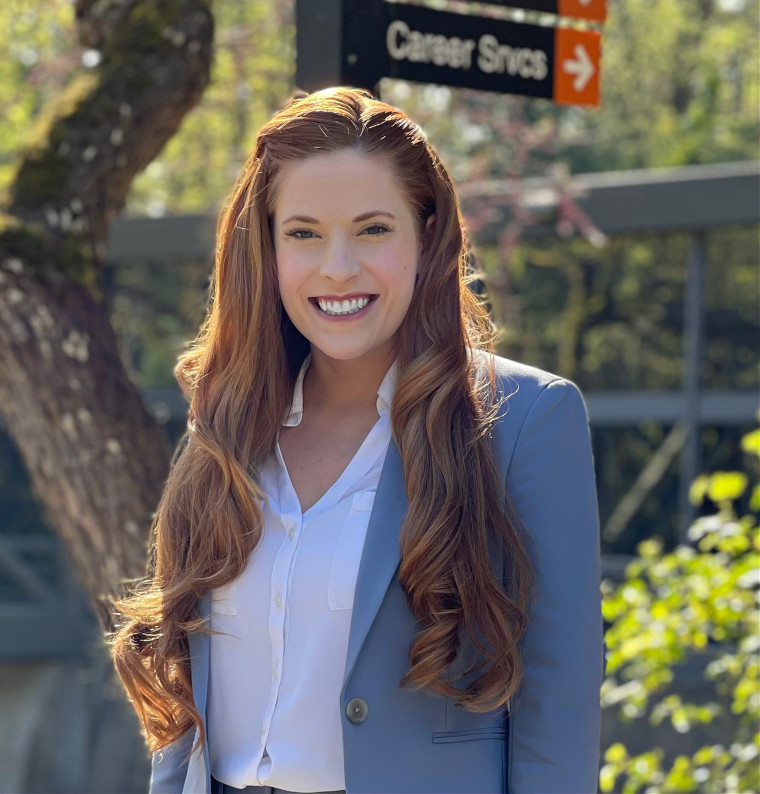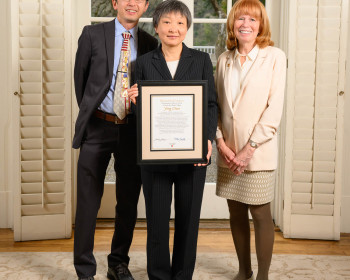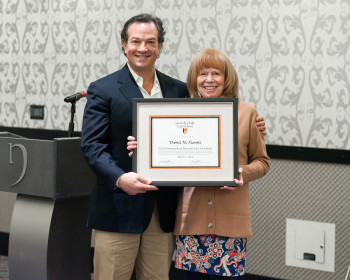Natalie Hollabaugh ’21 Selected for Prestigious Fellowship to Provide Juvenile Justice Legal Services in Oregon
Open gallery

Recent graduate Natalie Hollabaugh ’21 was selected for a prestigious two-year Equal Justice Works (EJW) Fellowship, sponsored by Intel Corporation and Munger Tolles & Olson LLP, with the Criminal Justice Reform Clinic (CJRC) at Lewis & Clark Law School. Only 70 candidates from around the nation are chosen as EJW Fellows each year.
“We are thrilled that Natalie will be continuing her work with the Criminal Justice Reform Clinic on behalf of Oregon’s youth,” stated Clinic Director Aliza Kaplan. “Natalie is a force for good, a passionate advocate, and warrior of social change. We are very grateful to have the support of Equal Justice Works, Intel Corporation, and Munger and Tolles & Olson LLP on this important juvenile justice project.”
Hollabaugh is one of only two EJW Fellows to receive a fellowship in Oregon and one of only seven Lewis & Clark Law School graduates to receive an EJW Fellowship ever. She will be working on a project with CJRC to fill gaps in the juvenile justice legal services and resource network in Oregon and create ongoing support to benefit youth.
“From national studies, we know that Black youth and youth of color are especially vulnerable to more severe consequences resulting from juvenile convictions,” Hollabaugh explained. The project will enable Hollabaugh to work with Oregon’s 197 school districts as well as the 500 youth currently incarcerated in Oregon, and the hundreds more who are facing collateral consequences statewide. She will be working to improve outcomes and provide much-needed legal support.
Hollabaugh has spent her career working closely with students and teenagers. After she graduated college she became a public school science teacher. “After getting to know students in my classroom, many of whom needed support, I noticed quickly students impacted by the criminal legal system were facing a level of consequences I realized would impact the trajectory of their entire lives, what I now know to be collateral consequences,” Hollabaugh said.
Her experiences as a public school teacher, and the frustration she felt having to navigate policies and procedures she felt were unfair led her to pursue a legal career in juvenile justice. “Oftentimes, it felt as though my mere existence as a teacher was perpetuating the School to Prison Pipeline,” Hollabaugh explained. “I also quickly recognized I was spared from legal interaction because of my whiteness and because of my privilege. I watched students go from having a fairly normal teenage experience, albeit a difficult one, to being sentenced to lengthy terms of incarceration.”
“I am most excited to continue working with teenagers and emerging adults as the project was designed alongside them and it is imperative that directly impacted individuals be centered in this work,” Hollabaugh stated.
EJW Fellowships are focused on post-graduate work that serves a specific population or addresses an unmet legal need. The Fellowship program provides help with the financial and structural barriers that prevent talented candidates from pursuing careers in public interest law.
Law Communications is located in room 304 of Legal Research Center (LRC) on the law Campus.
MSC: 51
email jasbury@lclark.edu
voice 503-768-6605
Cell: 626-676-7923
Assistant Dean,
Communications and External Relations, Law School
Judy Asbury
Law Communications
Lewis & Clark Law School
10101 S. Terwilliger Boulevard MSC 51
Portland OR 97219

